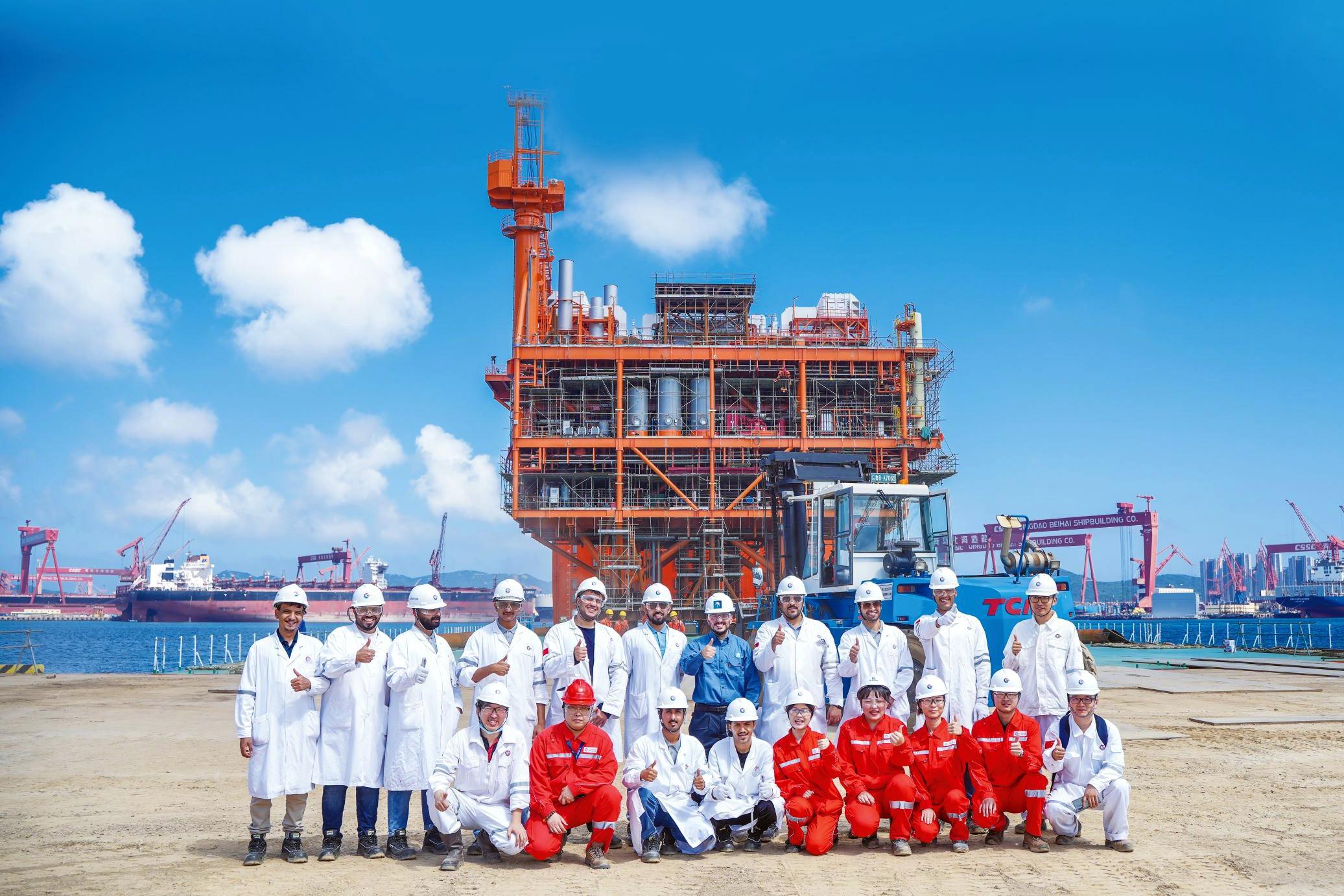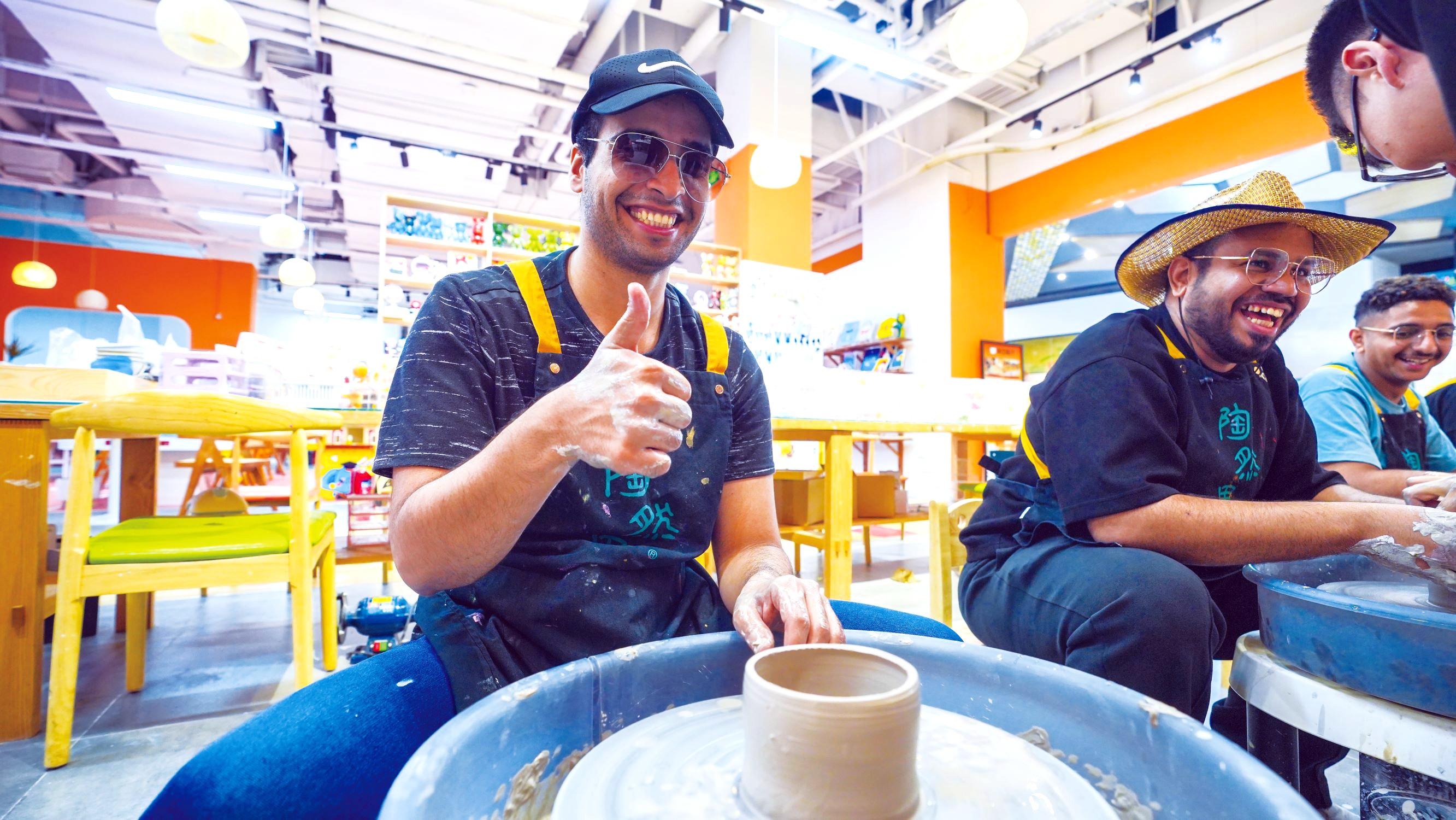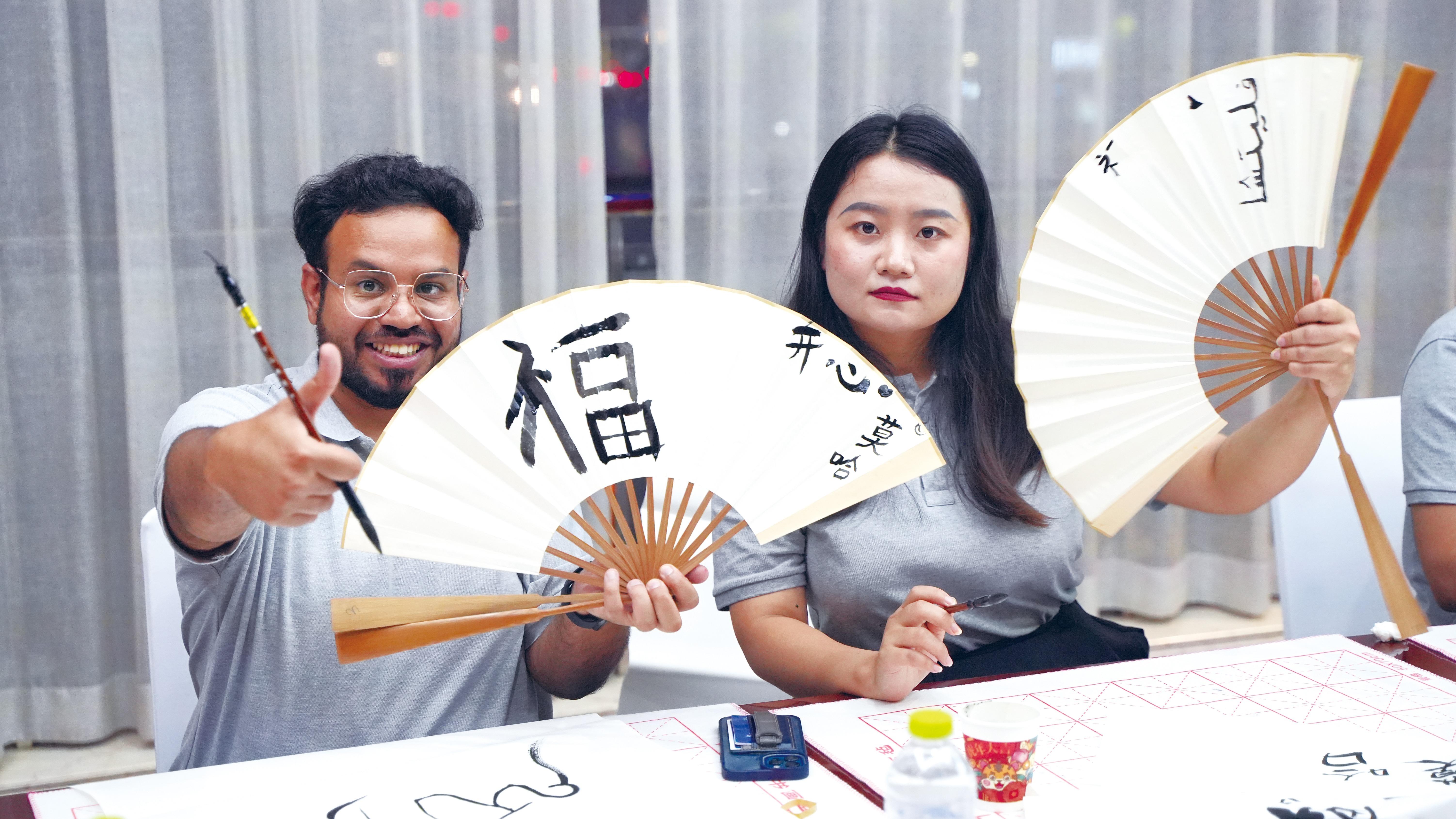This summer, 12 students from Saudi Arabia were given the chance to deepen their understanding of the oil industry and engage in cultural exchange as part of a special training program in China, Gui Qian and Yang Cheng report.
 Twelve Saudi students visit an oil engineering platform in the Bohai Sea. (PHOTO PROVIDED TO CHINA DAILY)
Twelve Saudi students visit an oil engineering platform in the Bohai Sea. (PHOTO PROVIDED TO CHINA DAILY)
When Jaghami Nawaf Hussain A, from Saudi Arabia, first stepped into the Tianjin Intelligent Manufacturing Base of the Offshore Oil Engineering Co (COOEC), the 22-year-old was taken aback by how "intelligent" it really was.
"Before I went there, I thought they were not 100 percent automatic and required at least some human input. But they are! They don't need any help from people for welding, inspection, or building things," he said. "There, I learned how to build an offshore oil production platform, how to take oil from the deep sea, and how to transport oil from offshore to onshore. They (the Chinese engineers) taught us step by step."
Nawaf got the chance to gain such insights through participating in the 2023 Summer Training Program for Saudi Students, jointly organized by the COOEC under the China National Offshore Oil Corp (CNOOC) and Saudi Aramco, two leading oil companies in the two countries.
Running from July 28 to Aug 23, the program invited 12 Saudi students in China to travel to Qingdao in Shandong province and then to Tianjin, offering them oil engineering technology training and an immersive cultural experience, such as kung fu lessons, calligraphy workshops and dumpling-making sessions.
According to Guo Ying, one of the program's organizers from COOEC, the activity is the first of its kind. Two large enterprises have built a platform through which young Saudi Arabians can deepen their understanding of China's marine oil and gas industry as well as Chinese culture.
"The program not only provides professional and vocational education for the students — who all study engineering-related majors — but also helps foster stronger friendships and exchanges between the two countries," Guo said.
Xu Qian, an engineer of COOEC and a coach of the Saudi students, agreed. "The exchanges and learning are mutual," he said. "Saudi Arabia is a country with rich oil resources and industrial experiences. Their standardization and integration of production is what we need to learn."
 Saudi students attend pottery and calligraphy workshops. (PHOTO PROVIDED TO CHINA DAILY)
Saudi students attend pottery and calligraphy workshops. (PHOTO PROVIDED TO CHINA DAILY)
About what the Saudi students can learn from China's marine oil and gas industry, Xu thinks the first thing is the fast delivery capability of Chinese companies. "For example, in just one year, we can complete an oil platform manufacturing project that usually takes two to three years," he explained, adding that China's digitalization technology is also cutting-edge.
Apart from the intelligent manufacturing base, the Saudi students also visited a simulation center for offshore oil engineering equipment, where they saw underwater operation robots and experienced the simulative installation process of offshore platforms using a digitalized command module.
During the field trips, Alghamdi Abdulaziz Abdullah S, 29, carried a notebook wherever he went to timely record what he learned for later review. He had worked as a mineral engineer for four years before coming to China to study civil engineering at the University of Science and Technology Beijing. However, he has always maintained a humble mentality of starting from zero, which has earned him the fame of "top student" among his peers in the summer program. "I just find there are so many new things to learn here in China," said Abdulaziz.
Another thing about China that has impressed Abdulaziz is the kindness of Chinese people. "They are very friendly and nice. They live in equality and harmony, which makes China such a safe country to live in," he said. "I think China is the best place I've ever been to."
Now Abdulaziz is learning Chinese, hoping to break through the language barrier to better understand China in the future. He also proudly mentioned that nowadays, more and more Saudi Arabian children have started to learn Chinese since primary school or even kindergarten.
Aldhafeeri Fahad Salman F, 29, speaks the best Chinese among the 12 Saudi students. Having stayed in China for only 10 months, he is already fluent in daily conversations, seminar discussions and even delivered a speech in Chinese during the summer program. "I love making friends. I have many Chinese friends whom I chat with every day. That's how I pick up Chinese," he said.
 Saudi students attend pottery and calligraphy workshops. (PHOTO PROVIDED TO CHINA DAILY)
Saudi students attend pottery and calligraphy workshops. (PHOTO PROVIDED TO CHINA DAILY)
Apart from Mandarin, Fahad even speaks some Sichuan dialect. "Months ago, when I first visited Chengdu (the capital city of Sichuan province), I felt so comfortable and connected to the city, as people there treated me so sincerely and were so willing to offer help," he recalled. So far, he has traveled to 14 Chinese cities and has made friends across the country.
Having once studied medicine at university, Fahad is now working on his master's degree in artificial intelligence at Harbin Institute of Technology in Northeast China's Heilongjiang province. Surrounded by many hardworking Chinese classmates, Fahad feels motivated. "They study for more than 10 hours every day. They put their hearts into their schoolwork and always finish tasks in advance. I appreciate the diligence and perseverance of young Chinese people," he said.
These qualities are also what Alshahrani Dhafer Abdullah M, 33, has long been pursuing. Dhafer grew up in a village in Saudi Arabia. Wishing to explore more about the world, he has studied and worked in the UK and is now a postgraduate student majoring in engineering management at the University of Science and Technology Beijing.
Dhafer said he was "attracted by the profound history of China", referring to the great Chinese navigator Zheng He's voyages to the Middle East in the Ming Dynasty (1368-1644). The relationship between Saudi Arabia and China is historical, but what impresses him more is the increasing exchanges between the two countries in recent years.
In his presentation at a seminar last week, Dhafer talked about the China-Arab State Technology Transfer Centre in Northwest China's Ningxia Hui autonomous region, where Chinese organizations share industry 4.0 technology and knowledge with Arab countries. He also referred to Saudi Arabia's King Salman scholarship program, which has helped thousands of Saudi students come to study in China since 2007.
"Seven people in my village have come to China for their studies, including a brother and sister of mine who both graduated with PhD degrees," he said. "I think my road to success lies here in China too and I plan to work in China after completing my studies."
Just like many other Saudi students in China, Dhafer said he aspires to become a bridge between the two countries.


